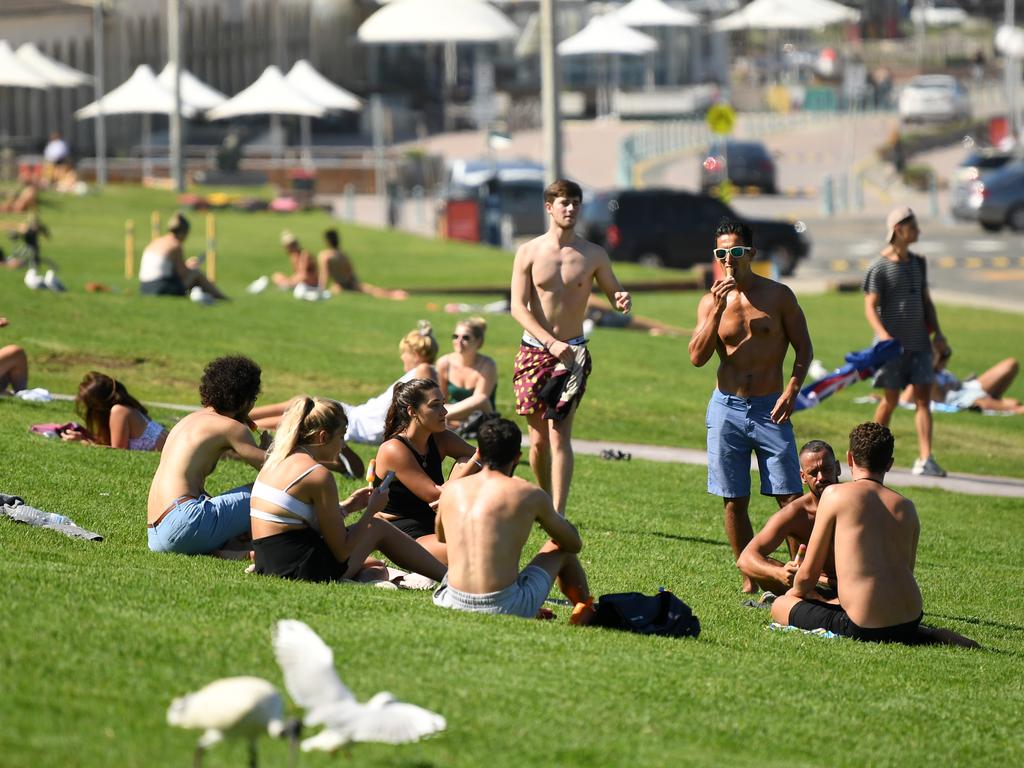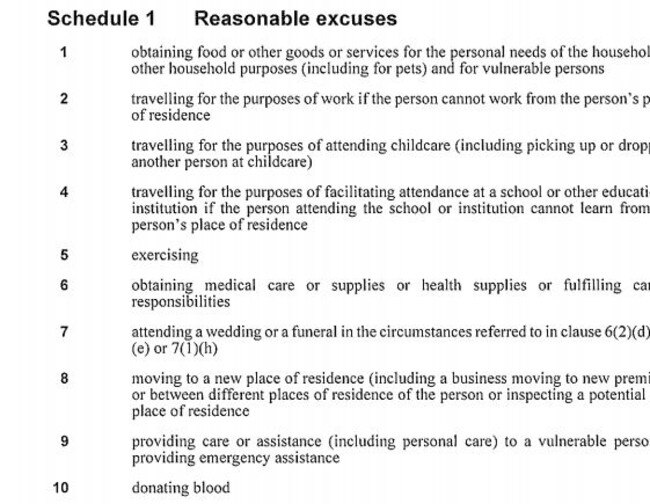Coronavirus: Everything that’s happened in past 24 hours
It has been another frantic day of coronavirus developments in Australia. Here’s everything you need to know about how it will affect you.
There’s a lot of information to take in with the coronavirus pandemic, as the situation is rapidly changing.
Over the past 24 hours in Australia there have been some pretty significant developments, so let’s take you through what happened.
As of Tuesday afternoon there were 4557 confirmed cases in Australia, including 2032 in NSW, 917 in Victoria, 743 in Queensland, 337 in South Australia, 364 in Western Australia, 69 in Tasmania, 80 in the Australian Capital Territory and 15 in the Northern Territory.
Australia’s death toll rose to 19 after Tasmania recorded its second coronavirus fatality, an elderly man who died in the Royal Hobart Hospital overnight.
RELATED: Follow the latest coronavirus updates

WHAT WE KNOW
“Infected backpackers” have been blamed for an outbreak of the virus in Bondi, with NSW Health ramping up testing in the eastern suburbs.
“We know there is a potential risk that other members of the community may have come in contact with infected backpackers,” NSW chief health officer Dr Kerry Chant said during a press conference today.
“We have had a small number of cases in that community where there aren’t obvious links, but a plausible explanation is they have come into contact with an infected backpacker before that backpacker was aware they had COVID-19.”
News of this outbreak came after NSW announced strict new measures, meaning anyone who leaves their house without “reasonable excuse” can now cop six months in jail or an $11,000 fine.
They can also be fined another $5500 for each day the offence continues.
Corporations that fail to comply are liable for a $55,000 initial fine and $27,500 for each day the offence continues.
These are the 16 acceptable “excuses” for leaving home.

Another concerning outbreak has emerged in South Australia, where six Qantas baggage workers have tested positive to the virus. The Adelaide Airport cluster of cases has forced 100 staff into quarantine and travellers from the past 24 hours have been urged to “wipe their bags”.
Major bottle shops have also introduced buying limits, restricting shoppers to two slabs of beer or cider and 12 bottles of wine in one transaction as part of a national alcohol limit set out by Retail Drinks Australia.
Retailers who have voluntarily joined the initiative include Liquorland, BWS, Vintage Cellars, Dan Murphy’s, IGA Liquor and Aldi.
The new $130 billion support package announced by Prime Minister Scott Morrison last night has already been inundated with applications.
More than 113,000 Australian businesses have already registered their interest in the new Jobseeker subsidy that would see employees receive $1500 a fortnight.
As of 8am today, over 113,000 Australian businesses have registered their interest in the new #JobKeeper wage subsidy of $1500 per fortnight for each employee. Our $130 billion plan is all about keeping Australians in jobs while we deal with this #coronavirus crisis.
— Scott Morrison (@ScottMorrisonMP) March 30, 2020
WHAT WE DON’T KNOW
Mr Morrison is yet to officially announce that the country would be moving to a widespread “stage three” lockdown, but some states have taken it upon themselves to move head.
Victorian Premier Daniel Andrews announced his state was moving to stage three, and would be enforcing the new federal guidelines around two-person gatherings with on-the-spot fines of up to $1600.
Under Victoria’s definition of stage three, there are only four reasons to leave your house – for food and supplies, exercise, medical care or work and education if you cannot do so from home.
This lines up with the new guidelines issued by the PM on Sunday night, but it seems he has left it up to each state and territory to official announce if this means they have moved to stage-three lockdown.
If we assume these new measures mean we are already at stage three, then the next question becomes what would stage four look like.
Former senior Howard Government adviser Terry Barnes said stage four would be a “total lockdown” much like they have in the UK and Europe.
Services that are obviously essential like supermarkets, pharmacies and petrol stations will always remain open regardless of the level, but “anything that doesn’t relate to the necessities of life or work” would be shut down in stage four.
“So places like Officeworks might be considered essential but the furniture department of Harvey Norman might not be,” Mr Barnes said.
“I don’t think there’s been enough very clear definition either by the federal or state governments. I think there needs to be national agreement about what those essential services are.”




